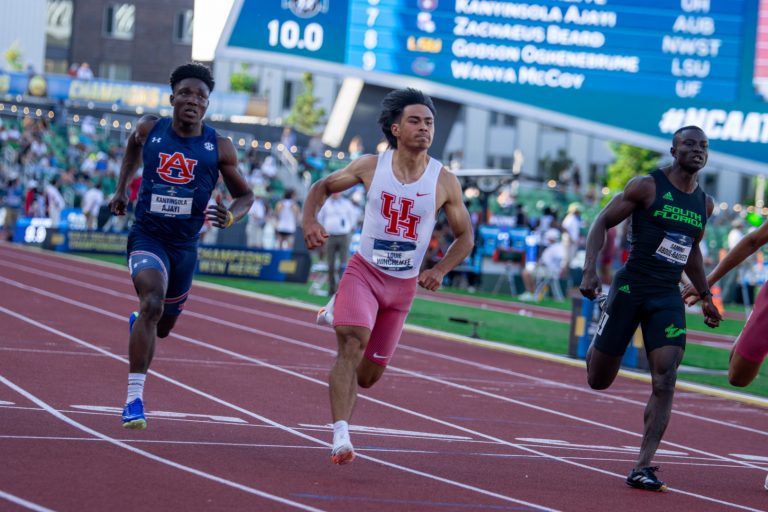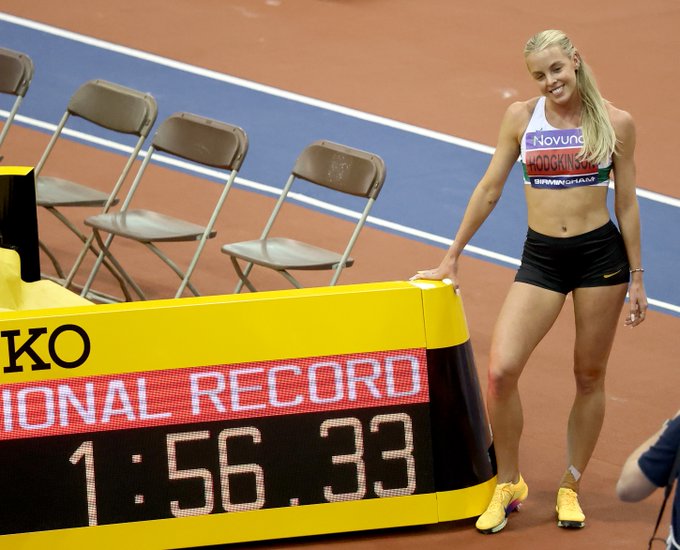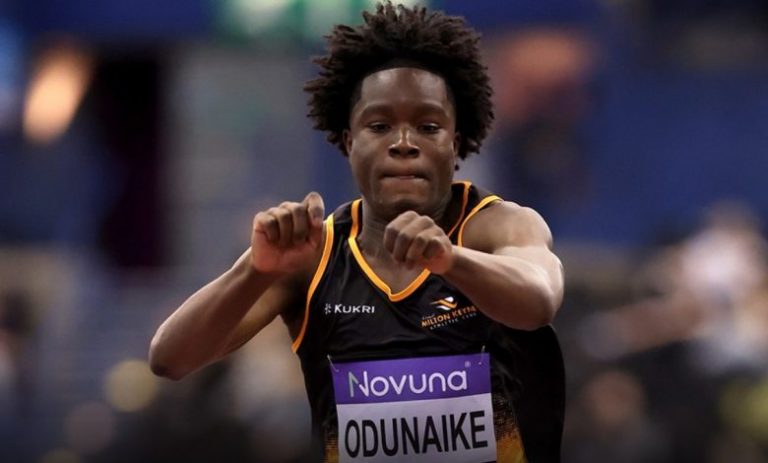British women’s sprinting has rarely looked so richly stocked with talent. Between Dina Asher-Smith, the poster girl of the sport for the past decade, and Daryll Neita, an Olympic finalist and multiple continental medallist, the current elite remain firmly at the top of their game. Behind them, 23-year-old Amy Hunt – World Championship silver medallist over 200m in Tokyo in 2025 – has ensured the immediate succession is in safe hands. Yet already, an even younger generation is beginning to send shockwaves through the stopwatch : Annabelle Fasuba, Honor Oteng, Celine Obinna-Alo, Aliyah Afolabi and Araya Williams, barely out of their teenage years – and in some cases not even there yet, they embody a precocious wave of sprinters capable, in time, of extending Britain’s proud tradition of speed.

An inspiring legacy fuelling new talent
The rise of these prodigies has not happened in isolation. For nearly a decade, Asher-Smith and Neita have established British sprinting among the world’s best, consistently reaching global finals over 100 and 200 metres while anchoring the 4x100m relay as a permanent force. Their consistency has opened up new horizons for the generations coming through. Already, a cluster of young sprinters born around 2004–2005 – Joy Eze, Success Eduan, Faith Akinbileje, Nia Wedderburn-Goodison and Renee Regis – are feeding short and medium-term hopes. This unprecedented strength in depth creates the perfect environment for the very youngest, who now have close, accessible role models in a highly competitive setting.
The explosion of precocious talent
It is within this stimulating atmosphere that Annabelle Fasuba has emerged – arguably the most spectacular revelation of the past two years. The daughter of Olusoji Fasuba, former World Indoor 60m champion and ex-African 100m record holder, and Ngozi, herself an Olympian in 2004, the Plymouth-based teenager has everything needed to mark her era. At just 13 years old she has already rewritten the national age-group lists: 23.72 for 200m, equalling Katharine Merry’s U15 British record set in 1989, and 11.51 for 100m to eclipse Jodie Williams’ mark. Perhaps most strikingly, these performances came less than two years after she first took up the sport, while her training remained largely focused on technical basics. It is a meteoric rise that makes her an unavoidable name for the future.
Honor Oteng represents another facet of this excitement. Born in 2012, she is the youngest of the quartet and came to prominence in 2025 by winning the Essex U15 title over 200m in 24.55, before clinching victory at the English Schools’ Championships in Birmingham with 11.81 over 100m – a time that places her joint-sixth all-time among British U15s. Less publicised than Annabelle Fasuba, Oteng nevertheless proves the base of talent is widening significantly, and that records of precocity are no longer the preserve of a single athlete.
Within this dynamic, Celine Obinna-Alo has carved out a distinctive profile. Coached by former World Indoor champion Richard Kilty, she made her mark in the winter of 2025 by winning the national U17 indoor title over 60m in 7.38 – a performance historically bettered only by Asha Philip. Since then, she has confirmed her pedigree outdoors with 11.69 for 100m into a stiff -2.2 m/s headwind, at just 15 years of age, showing her ability to excel both indoors and out. Even though she was beaten at the summer schools’ championships, Obinna-Alo has already established herself as one of the most reliable performers of her generation.
Finally, Cardiff’s Aliyah Afolabi and Birmingham’s Araya Williams round off this promising foursome. The first announced herself in 2024 with a U15 national record of 24.13 over 200m, and backed it up the following year with 11.62 for 100m – a time comparable to that of Daryll Neita at the same age. Welsh U17 champion in 23.86 this season, she has demonstrated steady progression and a growing ability to challenge the best juniors in Britain. The second one is as young as Oteng and for now, manages to be even quicker. One-tenth of a second faster over 100m, two tenths over 200m. Last August, during a 4*100m relay, she recieved the baton in fourth position, being a dozen of meters behind the first place, and finishing at the end, second, just behind the winner, showcasing her capacity of outrunning her rivals.
Like in so many sports, athletics history is full of precocious talents whose careers were later derailed by injury, pressure or a change of path. Yet together, these four teenagers represent a rare collective promise. Each sits high on Britain’s all-time U15 or U13 lists, and while the idea of 4 of Fasuba, Oteng, Obinna-Alo, Afolabi and Williams one day lining up together in a senior 4x100m relay is still a distant projection – and admittedly unlikely – the image of four sprinters who have grown up racing one another now carrying the baton for the United Kingdom is a tantalising one.




You left out the one with the most potential, Araya Williams.
Thank You for commenting, I edited my article as she is indeed extremely talented, I decided at first to only put 4 names to evoke a possible future british 4*100m team and I left her out, my mistake.